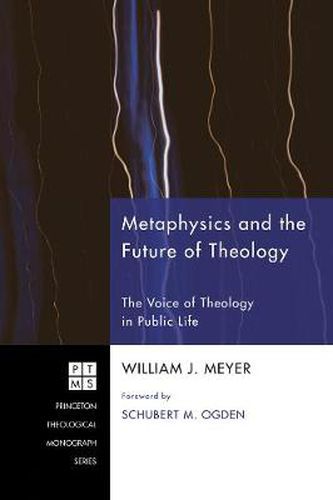Readings Newsletter
Become a Readings Member to make your shopping experience even easier.
Sign in or sign up for free!
You’re not far away from qualifying for FREE standard shipping within Australia
You’ve qualified for FREE standard shipping within Australia
The cart is loading…






William J. Meyer engages in critical and illuminating conversation with major figures in contemporary philosophy and theology in order to explain why theology has been marginalized in modern culture and why modernity has had such difficulty integrating religion and public life. Wrestling with notable philosophers like MacIntyre and Stout, and theologians such as Gustafson, Hauerwas, Porter, Milbank, and Reinhold Niebuhr, Meyer argues that theology must embrace modernity’s formal commitments to public and democratic discourse while simultaneously challenging its substantive postmetaphysical outlook. Drawing on the philosophical perspectives of Whitehead and Hartshorne and the theologies of Ogden and Gamwell, he concludes that a process metaphysical theology offers the most promising path for theology to regain a vital public voice in the world of the twenty-first century.
$9.00 standard shipping within Australia
FREE standard shipping within Australia for orders over $100.00
Express & International shipping calculated at checkout
William J. Meyer engages in critical and illuminating conversation with major figures in contemporary philosophy and theology in order to explain why theology has been marginalized in modern culture and why modernity has had such difficulty integrating religion and public life. Wrestling with notable philosophers like MacIntyre and Stout, and theologians such as Gustafson, Hauerwas, Porter, Milbank, and Reinhold Niebuhr, Meyer argues that theology must embrace modernity’s formal commitments to public and democratic discourse while simultaneously challenging its substantive postmetaphysical outlook. Drawing on the philosophical perspectives of Whitehead and Hartshorne and the theologies of Ogden and Gamwell, he concludes that a process metaphysical theology offers the most promising path for theology to regain a vital public voice in the world of the twenty-first century.